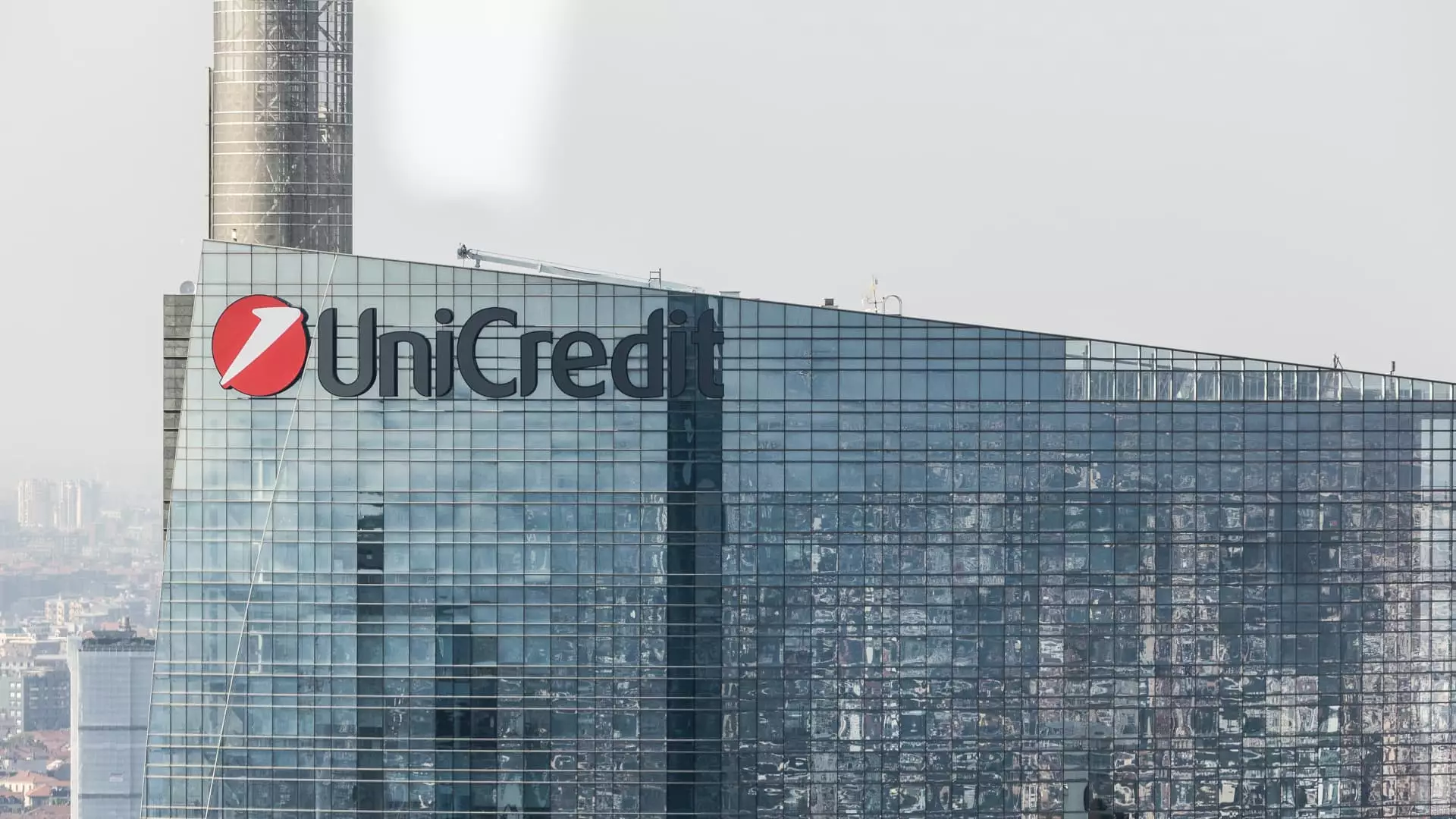In a bold maneuver that underscores the dynamic nature of the European banking landscape, Italy’s second-largest bank, UniCredit, announced on Wednesday that it has increased its stake in German lender Commerzbank to 28%. This significant expansion, which consists of a direct holding of 9.5% alongside approximately 18.5% derived from financial instruments, marks a strategic shift from a previously held 21% stake. By reaching out to the European Central Bank for approval to potentially elevate its stake to nearly 30%, UniCredit’s CEO Andrea Orcel is clearly positioning the bank to solidify its presence in Germany’s competitive banking sphere.
UniCredit asserts that this strategic move reflects a conviction that considerable untapped value exists within Commerzbank. The bank believes that harnessing this value is essential not just for its own growth but also for enhancing the overall health of Germany’s banking sector, which plays a crucial role in bolstering the nation’s economic framework. This belief in the German market also coincides with Orcel’s simultaneous pursuit of Banco BPM in Italy, highlighting his dual strategy of strengthening UniCredit’s position in both domestic and German markets.
Despite the bold increase in stake, UniCredit maintains that its current position is merely an investment and has no bearing on its ongoing €10 billion offer for Banco BPM. Analysts speculate that there remains room for Orcel to adjust his bid and introduce a cash component, potentially breaking new ground in the consolidating Italian market. This dual focus on both Commerzbank and Banco BPM illustrates UniCredit’s comprehensive strategy to bolster its market competitiveness against rivals like Intesa Sanpaolo.
The acquisition campaign has not been without obstacles. Commerzbank has noted its acknowledgment of UniCredit’s increased stake without offering extensive commentary, as the German bank prepares for an upcoming strategic update on February 13. The German government, which retains a 12% stake in Commerzbank, has historically been apprehensive about foreign influence in its banking sector—a sentiment that has been exacerbated by recent political turbulence following Chancellor Olaf Scholz’s government instability. This complex political backdrop could pose additional challenges for UniCredit, which must navigate both market and regulatory sentiments.
Following the announcement of this augmented stake, shares of UniCredit rose by 1.1%, while Commerzbank experienced a 3.1% uptick in its stock prices, indicating positive market reception to the prospect of a merger. Analysts previously signaled that a merger could yield synergistic benefits across various banking functions such as capital markets, advisory services, and trade finance—a prospect that could reshape the banking landscape in both Germany and Italy. The outcome of this unfolding situation will be closely monitored, as it sets the stage for potential shifts in the European banking paradigm, promising both challenges and opportunities ahead.
UniCredit’s strategic endeavors represent a significant chapter in the ongoing evolution of the European banking sector, marked by a focus on synergy, competition, and the quest for sustainable value creation.

